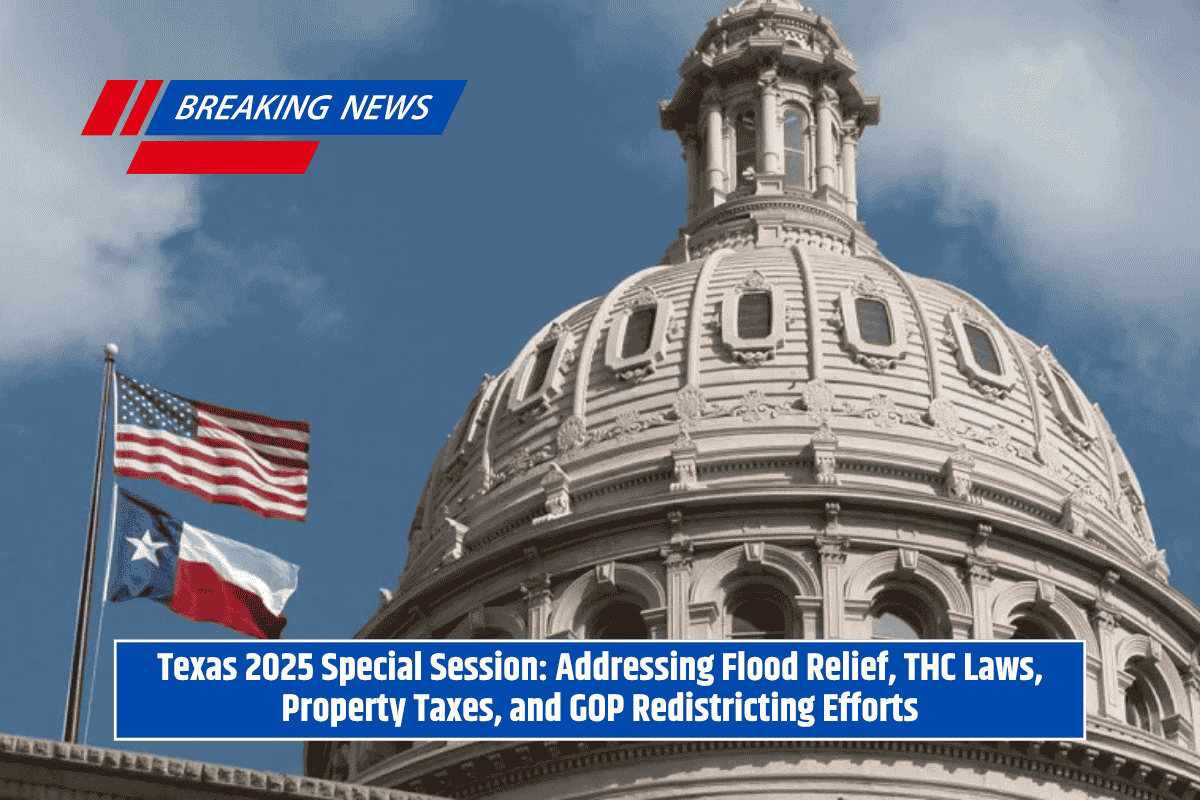The 30-day special session of the Texas Legislature officially kicks off on Monday, July 21, with Governor Greg Abbott setting an ambitious agenda of 18 legislative priorities.
The session will tackle various issues ranging from flood relief and property tax reform to the regulation of hemp-derived THC and a contentious proposal to redraw the state’s Congressional map.
Flood Relief and Disaster Response
Among the key priorities is addressing the aftermath of the catastrophic flooding in Central Texas. The floods, which took place over the July 4 weekend, left over 100 people dead, with dozens more still missing.
Abbott has outlined four flood-related items on the agenda, including improving flood warning systems, securing emergency communications, and providing relief funding for the Hill Country.
Kerr County, the epicenter of the disaster, had no flood warning system in place, leading to criticism of local authorities for not prioritizing safety.
Despite the flood’s devastating toll, Democratic leaders argue that Abbott has the emergency authority to provide relief without requiring legislative approval.
The Texas Democratic Party criticized the inclusion of flood relief on the session’s agenda, suggesting that the session may instead serve Republican special interests rather than focus solely on helping flood victims.
Controversial Redistricting Proposal
Another hot topic on the special session’s agenda is the redrawing of Texas’s Congressional districts. Governor Abbott’s call for redistricting stems from a letter he received from the U.S. Department of Justice, alleging that certain House districts with majority people of color may be racial gerrymanders.
Critics of the redistricting push, including Democrats, believe this may be an effort to benefit the Republican Party, as President Trump has reportedly urged Abbott to create more GOP-friendly districts to maintain Republican control of the U.S. House.
This issue is set to stir heated debates as lawmakers question whether the redistricting is truly necessary or politically motivated. Many Republicans are likely to support the redrawing of district lines to increase GOP representation, while Democrats view the move with suspicion.
Regulating THC in Texas
Regulation of hemp-derived THC products is another item on the agenda. After a bill banning THC products (SB 3) failed earlier this year, Abbott has vetoed the legislation and called for a new proposal that would regulate THC products and restrict sales to individuals under 21.
Opponents of SB 3 argued that the bill would have harmed Texas’s burgeoning cannabis industry, while advocates for veterans and chronic pain sufferers see the need for access to medicinal cannabis.
Democratic lawmakers, such as Rep. Mihaela Plesa, suggested Texas look to neighboring states like Oklahoma and Louisiana as models for effective regulation.
Property Tax Reform
Property tax reform is also high on the legislative agenda. Republican Rep. Brian Harrison has introduced multiple bills aimed at providing relief to property taxpayers, including a proposed constitutional amendment to eliminate ad valorem taxes.
Harrison and others have criticized the lack of meaningful action on property taxes during the regular session, claiming that taxpayers are frustrated with the current system. The push for tax relief, however, raises questions about how such cuts would be funded and whether they could impact other areas of state spending.
With such a packed agenda, Texas lawmakers face a daunting task ahead. Flood relief, redistricting, property tax reform, and THC regulation all promise to spark contentious debates within the Legislature. Whether they can balance these priorities in the limited 30-day window remains to be seen.
While Democrats are urging a focus on flood recovery, Republicans are pushing forward with their broader legislative goals, making this special session one of the most closely watched in recent history.
